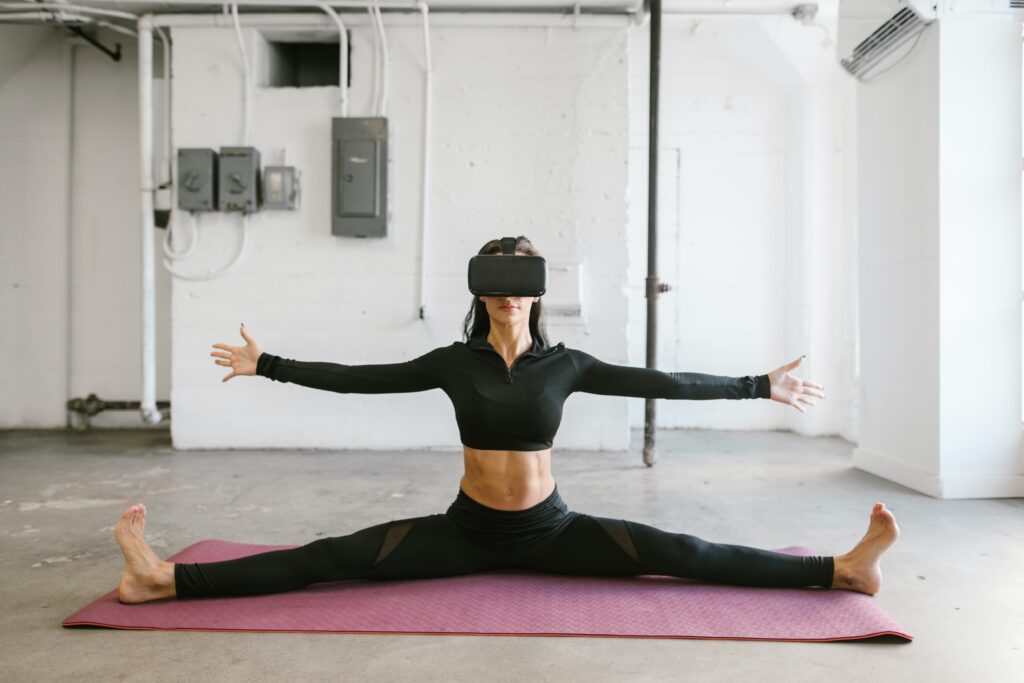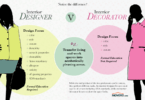In today’s digital world, where technological advancements are constantly pushing the boundaries of innovation, VR (virtual reality) is rapidly transforming the way we learn.
With VR, students, and learners can venture beyond the confines of classrooms, textbooks, and passive lectures. Instead, theoretical knowledge can come to life through immersive experiences.
By placing learners in a virtual lifelike environment, the learners can interact with the subject in a more interactive and meaningful way. This has been proven to be effective in ensuring better knowledge reception and retention.
VR is paving the way for an educational evolution unlike anything we’ve seen before.

The Rise of VR Training
Virtual reality (VR), as a technology, has been around for decades. However, only in recent years has it begun to gain widespread adoption as a tool for learning.
This is due to a number of factors, but mainly because of the rapid advancements in hardware and software that have made VR more accessible, tangible, and affordable than ever before.
Today, VR is widely used as a tool for training in diverse fields, from educational institutions to healthcare to engineering and aviation. For example, VR training is now being used by Boeing to train pilots to fly their newest aircraft. In the medical field, VR is also used by surgeons to perform simulated surgery.
VR training is no longer a niche concept, but a game-changing solution that promises to redefine how people in different fields learn and acquire new skills.
Here are some success stories of VR being used as a training tool effectively in different fields:
- According to Yale University School of Medicine, VR training can help surgeons reduce their errors by up to 6 times. The same study also found that VR-trained surgeons were 29% faster than before the training.
- A study by Miami Children’s Health System demonstrated that students who received VR training were able to retain nearly 80% of what they learned when tested after one year. On the other hand, students who trained with traditional methods retained only 20% after a week.
- Walmart saw an improvement in test scores by up to 70% for workplace tests after they received VR training. The same employees also experienced an increase in job satisfaction by 30%.
VR Training Across Industries
Today in 2023, VR training has become a driving force across industries, actively being used to transform training and learning in various fields.
In hazardous fields
VR training has become a game-changer for employees in various fields that need to work in high-risk environments, such as construction, firefighting, mining, military, and others.
- Law enforcement: police forces can use VR simulations to immerse personnel in hazardous situations to acquire critical skills, practice de-escalation techniques, firearm training, and others without real-life hazards.
- Emergency response: VR training can equip firefighters and emergency responders with important life-saving techniques, enhancing their decision-making and response times under pressure.
- Military training: VR training can be utilized to prepare soldiers for tactical strategies, marksmanship, and real-combat scenarios.
- Oil and gas exploration: in oil and gas mining, even small accidents can lead to disastrous consequences. With VR training, engineers and technicians can practice identifying and handling potential risks.
In formal education and corporation
VR is actively used in corporate learning programs and traditional educational institutions.
- Virtual classrooms: VR is revolutionizing traditional education, allowing students to traverse outer space, explore historical events, or dissect the human body in virtual learning environments.
- Interactive learning: VR enables students to interact with complex subjects to help them understand abstract concepts better.
- Corporate training: VR can simulate real-work scenarios to help employees practice problem-solving, customer interactions, leadership, and other skills.
In healthcare
VR technology is being used to train medical professionals in both therapy and patient care, for example:
- Surgical simulations: aspiring surgeons can perform virtual surgeries to train them in difficult surgical procedures in a risk-free environment.
- Medical diagnosis and treatment: VR classes allow medical professionals to practice diagnosing and treating various conditions without the need for live patients.
- Therapy and rehabilitation: VR technology can also be used to provide patients remote therapy with a realistic and immersive experience, for both mental therapies and physical rehabilitations.
In engineering and manufacturing
In the complex fields of engineering and manufacturing, VR is being used to simulate various scenarios for more hands-on learning.
- Design and prototyping: VR allows engineers to build and test prototypes in a more cost-effective and safe way.
- Equipment operation: VR training facilitates practice in using heavy machinery and equipment without risking equipment damage or accidents.
- Optimization: VR can simulate manufacturing processes to help identify inefficiencies and bottlenecks, allowing for more efficient processes.
In entertainment and arts
- Immersive storytelling: VR is being used to push the boundaries of storytelling, allowing the audience to become active participants in the stories told, and experience them like never before.
- Virtual performances: musicians and performing artists can break the limitations of concerts and events to reach global audiences.
- Artistic expression: VR allows artists and performers to explore beyond traditional mediums, like interactive digital art forms, virtual sculptures, and more.
Embracing the Future of Learning
The wide availability of VR training solutions now enable organizations and individuals to adopt VR technology in a much more affordable and accessible way.
In the future, VR training will continue to transform the way we learn and acquire new skills. Embracing VR training can help you unlock the potential for professional and personal growth in more immersive and engaging ways:
- Accelerate learning: VR training offers the ability to engage in realistic simulations that have been proven to be effective in enhancing information retention and skill building.
- Safely acquiring complex skills: VR training enables those in hazardous and high-risk fields to develop the crucial skills without the real-life potential dangers.
- Unleash your creativity: artists, designers, and performers can use VR as a boundless canvas to express their creativity.
The future of learning is already here, and it’s time for you to seize the benefits that VR training brings.







Leave a Comment
You must be logged in to post a comment.